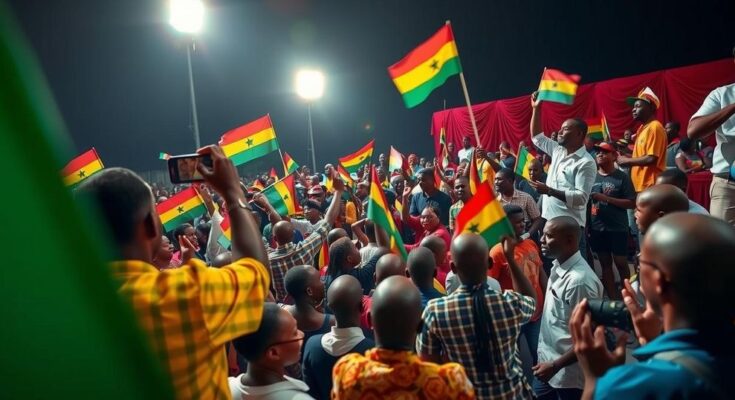Ghana’s 2024 elections highlight significant financial concerns, with estimates suggesting that winning a presidential election could cost around GH₵1.5 billion ($100 million). The Electoral Commission has budgeted over GH₵786.9 million ($52 million), reflecting the high costs associated with election financing amidst rising worries about corruption linked to political funding. A need for reforms to enhance transparency in campaign financing is being increasingly recognized.
As Ghana approaches its 2024 elections, the significance of financial expenditures in the electoral process has garnered increased attention. In recent years, concerns surrounding election financing raise questions about potential corruption and the integrity of the democratic process. A report from the Centre for Democratic Development (CDD) highlights that a substantial portion of campaign financing may stem from illicit activities, a troubling revelation for a nation facing critical economic challenges under a $3 billion International Monetary Fund (IMF) bailout program.
In 2020, Ghana’s Electoral Commission spent over GH₵760 million (approximately $51 million) on election-related activities. For the upcoming elections, Parliament has approved a budget of GH₵786.9 million (around $52 million), with the Commission requesting an additional GH₵140 million ($9.3 million) for necessary operational upgrades. The breakdown of these costs reveals that significant investments are made towards compiling voter registers and conducting elections, with further expenditures anticipated due to complications such as ballot paper reprints.
Moreover, winning a presidential election in Ghana could necessitate up to GH₵1.5 billion (about $100 million), according to a recent update from the CDD. This staggering figure encompasses expenses related to campaigning, constituency development, and remuneration for polling agents, reflecting the harsh reality of contemporary political competition. It appears that candidates increasingly rely on questionable funding streams, leading to calls for reform in Ghana’s campaign financing laws.
Under the Ghana Political Parties Act of 2000, regulations stipulate how political parties can fund their activities; however, enforcement is lacking. The absence of transparency regarding the sources of campaign funds poses challenges to the political landscape, where candidates often find themselves beholden to wealthy donors or illegal activities. According to Dr. Kojo Asante from the CDD, the phenomenon is unsustainable and raises ethical concerns regarding the nature of political support in Ghana.
As candidates gear up for this critical election period, they face not only the challenge of financing their campaigns but also the pressing need for systemic change to enhance transparency and accountability in political funding. Until comprehensive reforms are enacted, the financial burden of winning an election will remain prohibitive, perpetuating the cycle of corruption and diminishing the quality of democracy in Ghana.
The financial implications of conducting elections in Ghana have become exceedingly vital as the nation prepares for its upcoming electoral process in 2024. With mounting concerns encompassing the overarching impact of election financing on democracy, it is crucial to examine the economic burdens associated with political contests. The overwhelming costs coupled with prevalent corruption scandals are beginning to illuminate the need for reform in campaign financing laws to ensure fair elections and democratic integrity.
In conclusion, the financial landscape surrounding the 2024 Ghanaian elections underscores a pressing need for reform in campaign financing. With candidates facing exorbitant costs that could reach $100 million to secure a presidential victory, the reliance on questionable funding sources poses significant risks to the integrity of Ghana’s democracy. Enhancing accountability and transparency in political financing is essential for protecting the democratic process and ensuring that elections reflect the will of the people without succumbing to corrupt influences.
Original Source: www.bbc.com




